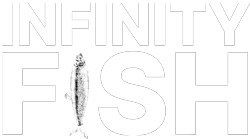These days I call myself an interdisciplinary ocean and fisheries economist. This is because I see the value of working with colleagues from different disciplines: Ecologists, mathematicians, other social scientists, media scholars, lawyers, etc. I also see the value of working with nonacademics: Indigenous peoples, policymakers, civil society advocates, fishing enterprises, environmental NGOs, journalists, etc. And, I do my work at multiple scales: local, national, regional and global.
It is this broad perspective of economics as it relates to the conservation and sustainable use of the ocean and the life it holds that allowed me to develop the ideas in this book. I therefore want to express my profound gratitude to the numerous individuals, institutions, private enterprises, funding bodies (too many to mention) that I have interacted with in every continent of the world except Antarctica. Without your engagement and collaboration this book would not have been possible.
-U. Rashid Sumaila
Infinity Fish: Economics and the Future of Fish and Fisheries is a practical and science-based reference that demonstrates how to value the benefits from restored marine ecosystems to sustain ocean and fishery resources for years to come. It discusses ecological and economical aspects to support the preservation of marine resources by understanding cost-benefits of fishery management systems. The book explains the economic benefits of restoring ecosystems that have been overexploited and how to maintain fisheries in a sustainable level.
Infinity Fish: Economics and the Future of Fish and Fisheries is a useful reference to a wide range of audiences. It is for those who wish to make systematic efforts to develop their fisheries sector, scientists and researchers, anyone in fisheries management, marine resource management, economists, fish farmers, policy makers, leaders and regulators, operations researchers, as well as faculty and students.
Key Features
- Includes case studies for each topic and provides detailed summaries to further understand them
- Presents examples and practical applications of cost-benefit concepts
- Provides models of statistical analysis to optimize decision making
Readership
Fisheries and ocean policy makers worldwide, professional fisheries management, economists, and resource management
Keywords
fishery management; fish stock; aquaculture; sustainability; oceanography; resource economics; marine biology; aquaculture; ecology
